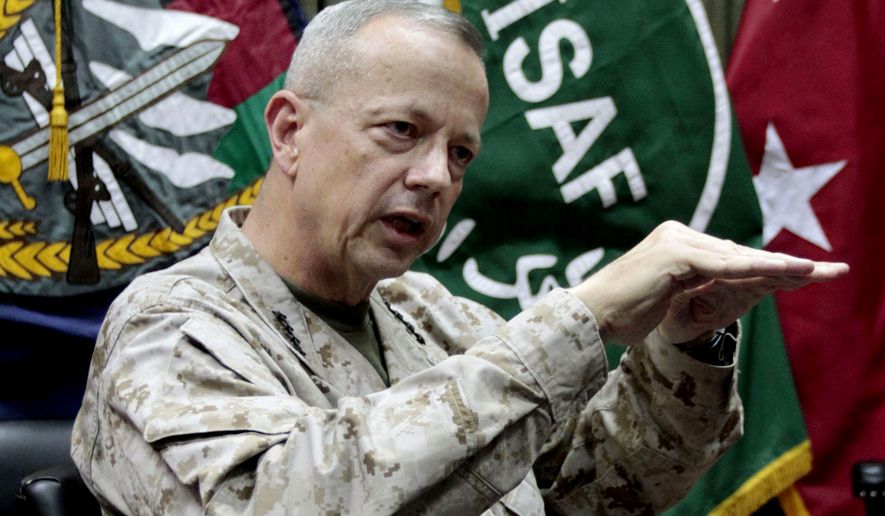The battle against the Islamic State may have been won, but the war against the terror group remains far from over, a retired four-star general said Sunday.
The fall of Baghouz, the eastern Syrian village that represented the final territorial enclave of the terror group known as ISIS, effectively ended the group’s violent five-year reign over much of the country and neighboring Iraq.
“ISIS’s loss of territory is further evidence of its false narrative, which tries to legitimize a record of savagery,” the Trump White House said in a statement late Saturday. “To all of the young people on the internet believing in ISIS’s propaganda, you will be dead if you join,” Mr. Trump said in the statement.
While the liberation of ISIS’ last slivers of territory in the Middle East is a major victory by the U.S-led coalition, it is not quite the total victory over the terror group, touted by Washington and its allies.
“I think it is a waypoint in the process of eliminating this threat,” said retired Marine Corps Gen. John Allen, when asked if the liberation of Baghouz was the death knell for the Islamic State.
“There is plenty of fighting that will still be going on” in Iraq and Syria, despite the collapse of ISIS’s so-called caliphate, said Gen. Allen, who was also the top U.S. envoy in charge of the anti-ISIS coalition under the Obama White House, said Sunday that U.S.-backed coalition forces.
“They have not given up one iota” of their ideology or desire said the former four-star general, now president of the Washington-based Brookings Institute. “This is still a dangerous and virulent group,” he added during an interview on CBS’s Face the Nation.
The biggest challenge facing the nearly 2,000 U.S. forces battling ISIS in Syria will be to ensure local forces can secure the terror group’s former holdings, against an ISIS that has reverted back to a classic insurgency group.
“If you do not stabilize the population … we face the potential for a [resurgence],” Gen. Allen said Sunday. But Mr. Trump has already set in motion plans to withdraw all American troops from the country over the next several months, with plans to leave a small 400 to 600-man force to oversee stability operations.
The White House only acquiesced to that small, residual force after severe pushback to the administration’s Syria withdrawal plans by the Pentagon and other national security officials.
• Carlo Muñoz can be reached at cmunoz@washingtontimes.com.




Please read our comment policy before commenting.